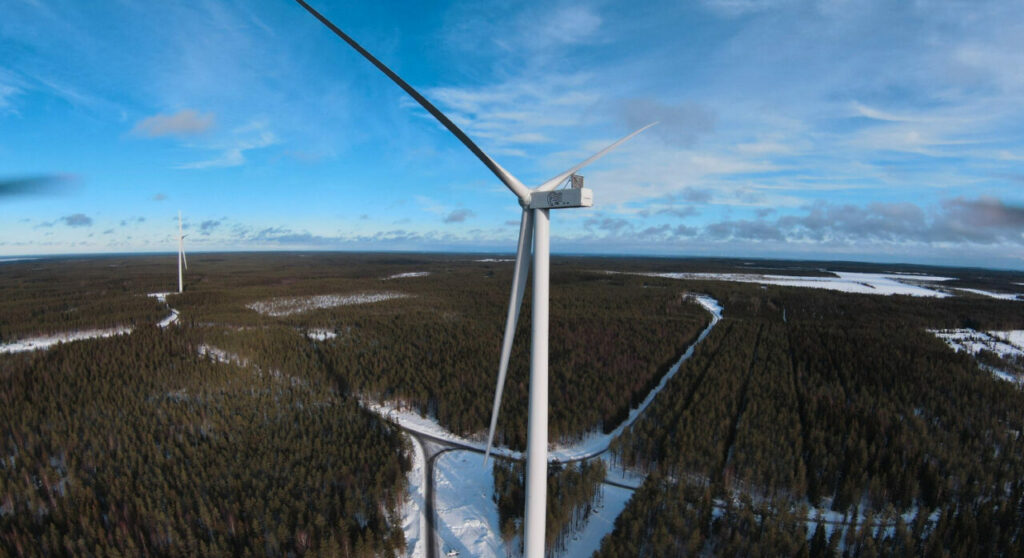
Battery energy storage systems (BESS) in the Nordics are seeing “extremely attractive revenues”, Finland-based optimiser Capalo AI said, as developers SENS and Ilmatar announced 70MW of projects in Sweden.
Capalo AI CEO Henri Taskinen was speaking to Energy-Storage.news after the firm raised €500,000 (US$530,000) in pre-seed funding for its optimisation platform and revealed it is optimising a 6.6MWh BESS owned by independent power producer (IPP) Exilion Tuuli in Finland.
Enjoy 12 months of exclusive analysis
- Regular insight and analysis of the industry’s biggest developments
- In-depth interviews with the industry’s leading figures
- Annual digital subscription to the PV Tech Power journal
- Discounts on Solar Media’s portfolio of events, in-person and virtual
That announcement coincided with two large-scale BESS in Sweden being progressed by their owners. IPP Ilmatar now has a 50MW PV, 20MW BESS in Knihult fully permitted to start construction in 2024 while developer SENS has signed a land lease in Hallsberg for a 50MW, earlier-stage project.
Discussing Finland and the Nordics more widely, Taskinen said opportunities for optimisation are growing as an increasingly volatile energy market is creating growth in ancillary service opportunities for BESS to participate in. Capalo will soon start optimising an asset in Sweden, the company said.
“Nordic countries are commissioning renewables rapidly; for example, Finland has had approximately 2GW of new wind power in the last year (between the end of June 2022 to end of June 2023). This causes volatility in energy production and an increase in procured ancillary market capacities (+600MW increase in two years in Finland),” Taskinen said.
“Furthermore, Intraday volumes and volatility are also increasing because of the fast pace of new solar and wind production. This is why batteries obtain extremely attractive revenues in the Nordics (Swedish, Danish, and Finnish markets) at the moment.”
He added that the ancillary service market in Finland is expected to grow by another 600MW again over the next two years, and BESS penetration of the current market may only be around 10-20%. The opportunity for optimisation and revenue stacking is mainly around choosing which ancillary service market to trade into at what time, as Taskinen explained.
“The primary strategy for battery trading is to utilise available capacity to the ancillary markets, revenue stacking it to multiple markets simultaneously. This is how you get maximal yields from the hourly ancillary markets in the Nordics: mFRR, aFRR, FCR-N, FCR-D, and FFR.”
Ilmatar’s project is technically two separate projects on two adjacent plots of land totalling 54 hectares, with a grid connection planned for 2025.
“More renewable energy is needed to accelerate green transition. Solar energy has immense potential in Sweden. Knihult’s solar farm will be our first, but by no means last. I look forward to start building it and then connecting the farm to the grid”, said Christian Gustafsson, managing director for Ilmatar Solar.
SENS said that project rights values in Sweden are SEK250,000 to SEK500,000 per MW (US$22,800 – US$46,000) and that its 50MW project would be valued at SEK12.5 million to SEK25 million (US$1.1 million to 2.3 million), once at the ready-to-build (RTB) stage.
The firm secured the land for a 40MW project in September and sold a 25MW one to Swiss IPP Axpo in May.
Capalo AI’s funding came from venture capital firms Innovestor and Inventure. Energy-Storage.news recently interviewed one of the leading optimisers in the UK and Australia markets, Habitat Energy, about the challenges for firms like it (Premium access).
Energy-Storage.news’ publisher Solar Media will host the 9th annual Energy Storage Summit EU in London, 21-22 February 2024. This year it is moving to a larger venue, bringing together Europe’s leading investors, policymakers, developers, utilities, energy buyers and service providers all in one place. Visit the official site for more info.






